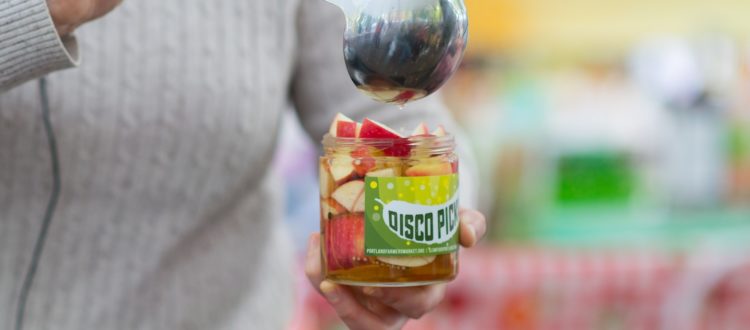Kind of a Big Dill
Guest post by Jana Fay Ragsdale
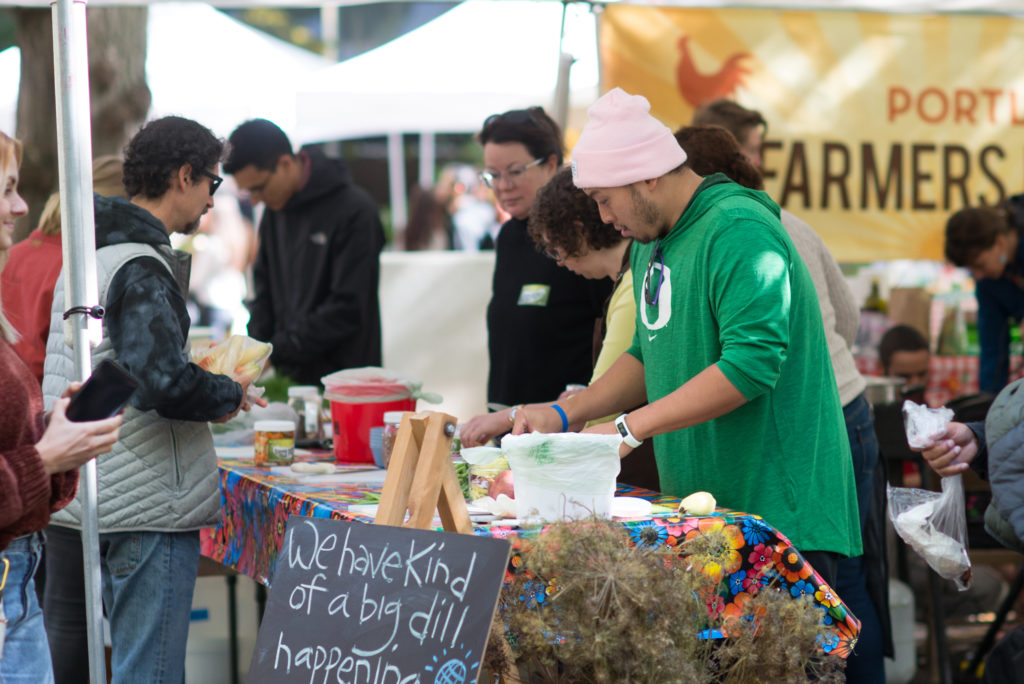
At our Disco Pickle event, market-goers chat and share produce as they make their own quick pickles with height-of-the-season ingredients.
Slow Food Portland and Cook First Portland joined Portland Farmers Market in October for Disco Pickle, quick-pickling events at the PSU and Lents International Farmers Markets. This collaboration set a communal table for sharing food, ideas and a few sweet dance moves.
Communal dining’s many known powers include bringing strangers together to break down barriers and strengthening bonds through the basic need and pleasure of being nourished. Communal cooking combines all of this as well as a more conscious acknowledgement of your neighbor as ingredients are considered and passed; eye contact is essential when the mise en place (prepared ingredients) are shared. Add disco music and it’s a party.
These communal dining events were dubbed “Disco Pickle” after the annual World Disco Soup Day: an event held in cities all over the globe where organizers–including the Slow Food Youth Network–create dance parties while turning food waste into soup. Both Discos provide a fun, low-barrier, economical entry point into cooking while showing people how to use ingredients that might otherwise go to waste, empowering people with the ability to make and store nourishing food.
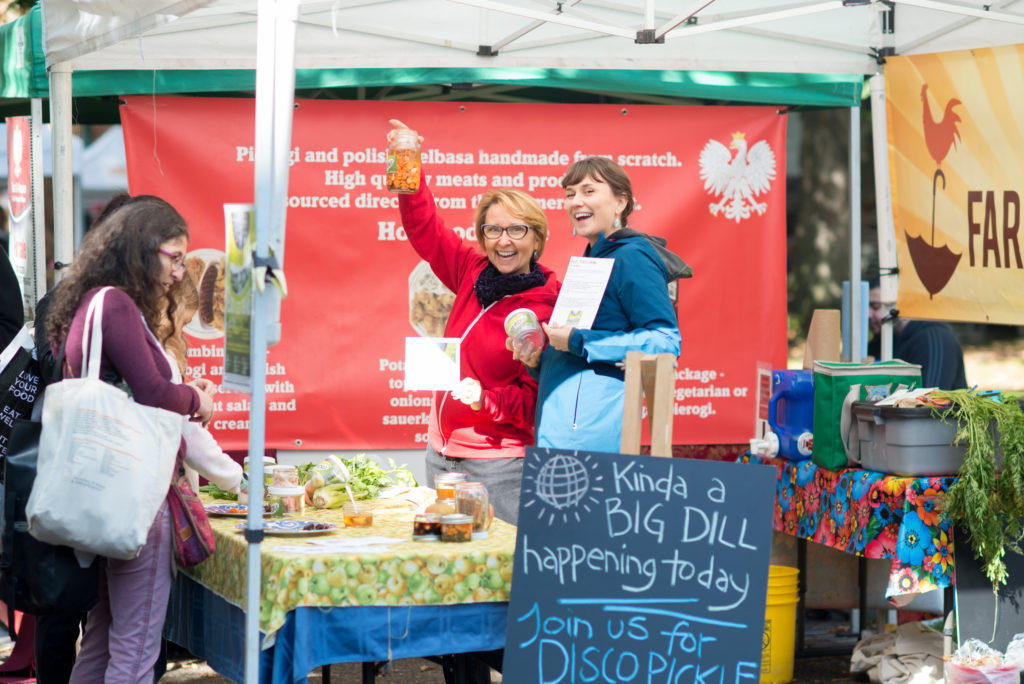
Enthusiastic Disco Pickle volunteers provided tasty samples, shared info about the upcoming demo, and helped shoppers decide what to purchase for the DIY station.
The events engaged both experienced and first-time picklers, drawn in by our volunteers offering samples of preserved apples, grapes, beets and more. As volunteers shared information about the upcoming demonstration and the DIY pickling station, they also provided shopping guidance. Market goers then had a chance to shop with an eye towards the produce they wanted to pickle and the farmers were keen to participate. This embodied the very ethos of farmers markets: being able to shop for food with origins you trust, bought directly from the producers who actually stand behind it, and in this case, preserved when the flavor and freshness resonate most.
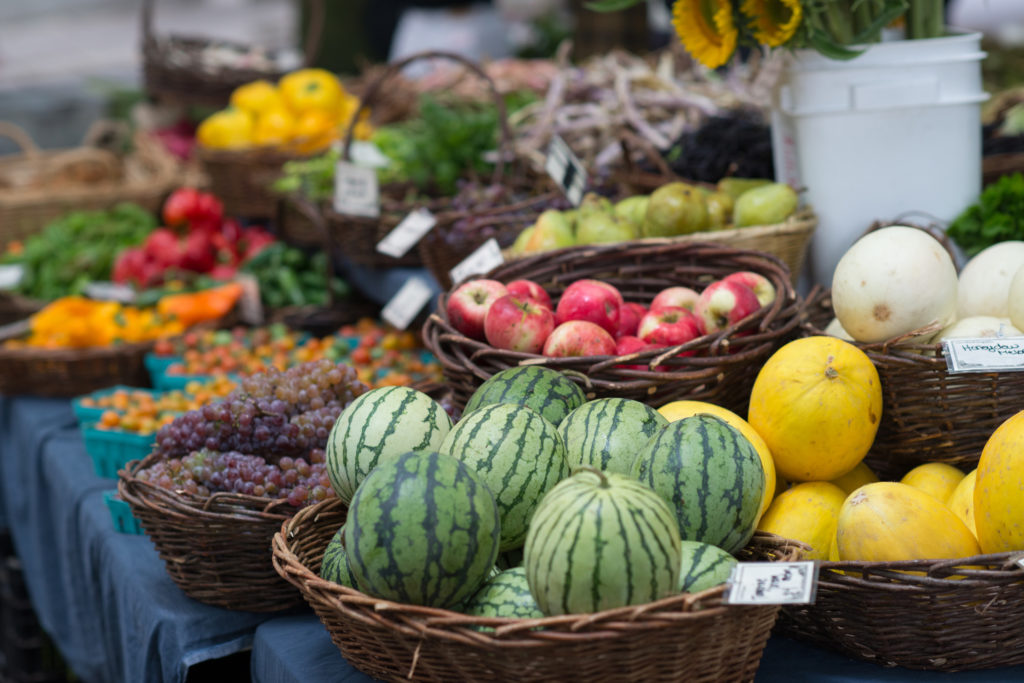
October provided brine-friendly produce like melons, apples, grapes, and more.
October offered brine-friendly produce like apples (pickled with ginger, star anise and clove), grapes, pears, melons (specifically melon rinds), radishes, zucchini, peppers, onions, garlic (pickled in a soy brine recipe from one chef’s grandma), beans, beets, cauliflower and even wild mushrooms. Over 85 market-goers bought approximately 57 lbs of produce and 25 heads of garlic purchased directly from farmers yielding 131 unique jars of Disco Pickles.
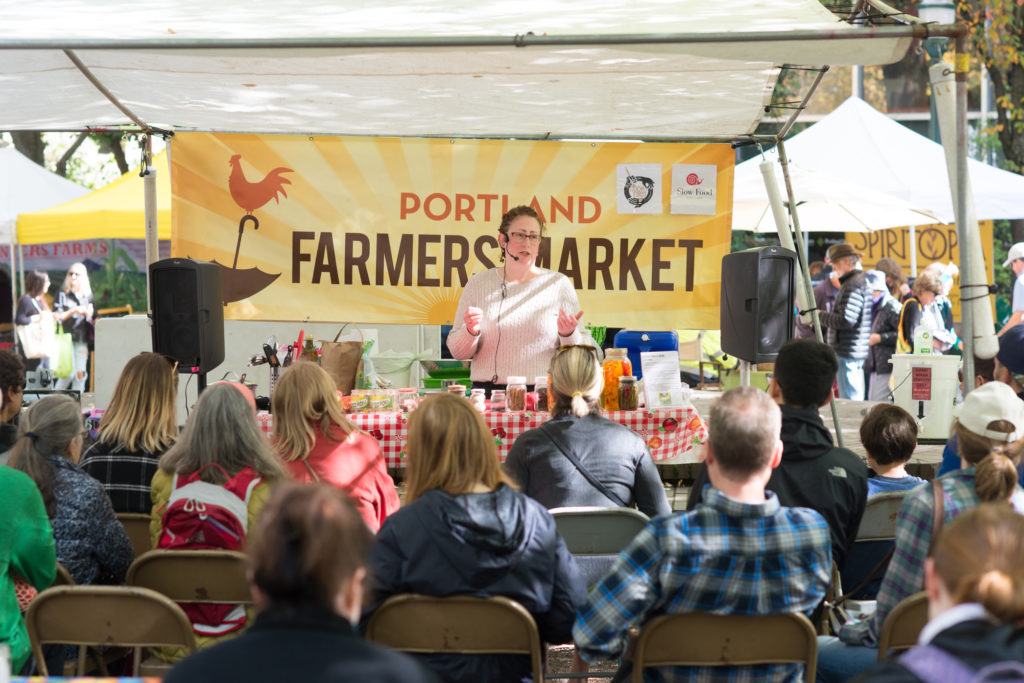
Chef-led demonstrations lay the foundation for technique and nutrition, readying shoppers to chop and pack their own produce into jars. (pictured: Chef Erin Connell).
Each event began with a chef-led demonstration that included preparing the brine and a how-to on what to preserve as well as ideas on incorporating quick pickled ingredients into daily meals.* Then as a disco soundtrack set the mood, organizers were on hand to assist with everything from produce prep to knife skills to how to blend aromatics. An array of these herbs, spices, and seeds, clean jars, cutting boards, knives, and of course, hot brine, rounded out the free prep offerings.
*Find out more about each chef and their recipes here.
What we didn’t expect was that so many people would share and exchange produce: one family used vibrant stems from someone’s discarded beet tops, while the few extra cloves of garlic they had were left behind for the next picklers. A stunning, ringed purple radish was sliced thin and packed off to three different homes. It was immediately apparent that something so simple and virtually fool-proof as quick pickling allowed the perfect environment for an open exchange of ideas without self-consciousness. Long time food preservation enthusiasts experimented with new produce they might not have considered at home, but experience mattered less than enthusiasm at Disco Pickle.
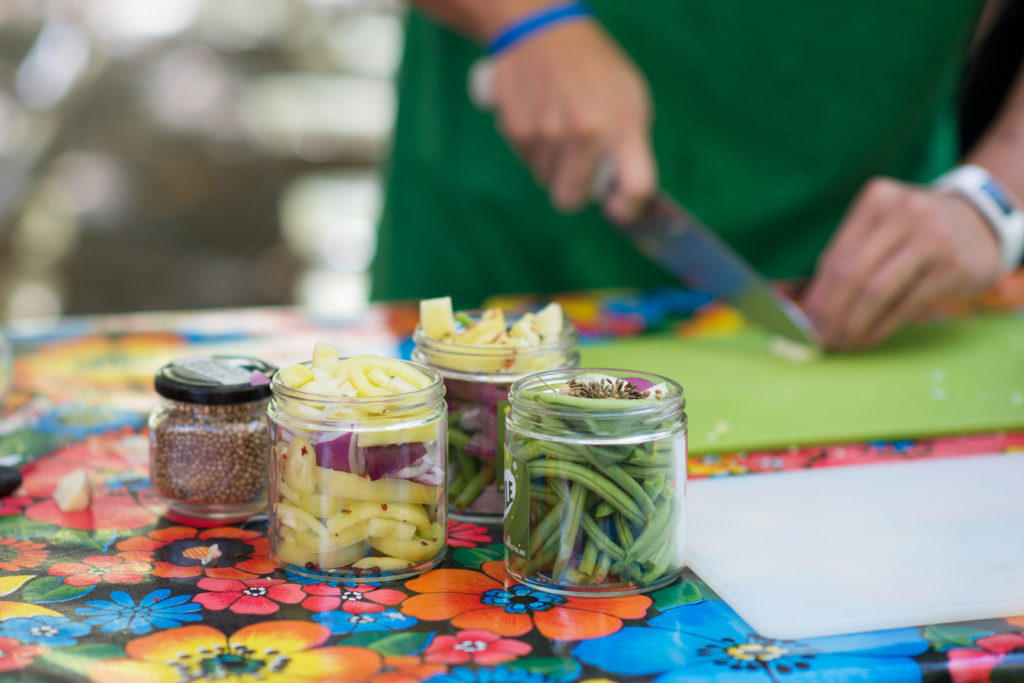
The colorful glass jars now settled into more than 100 refrigerators around Portland serve as a reminder for each family of how our community comes together to create something much larger than just tasty pickles.
Those colorful glass jars now sitting in over 100 refrigerators throughout the region are like 3D snapshots of a farmers’ market afternoon. Of a new super power. Of a good feeling. Pickled apple slices on a sandwich taken to work are a piquant garnish and also a memory of chatting with and working alongside a stranger. That it was also a radical act in revolutionizing the global food system probably comes to mind less, and that’s okay. To paraphrase Emerson: “Every revolution was first a thought in one person’s mind.” Our revolution begins one meal at a time: with one carrot top or beet stem or apple.

